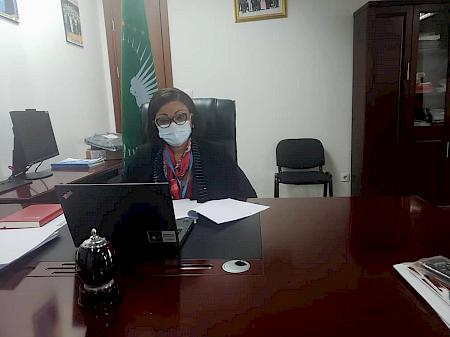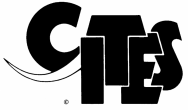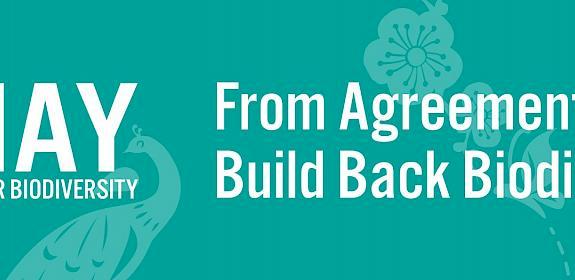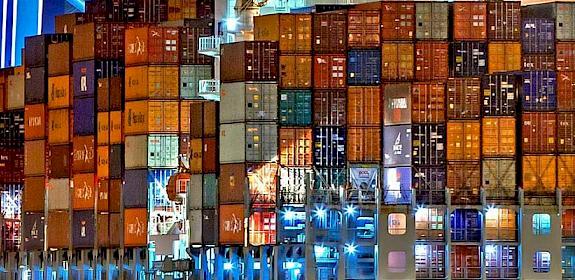Leading international organisations convene ahead of Endangered Species’ Day to strengthen efforts to combat illegal trade of Africa’s wildlife.
Today the African Union Commission (AUC) and TRAFFIC co-convened a virtual review webinar to examine the progress and opportunities of the African Union’s (AU) Wildlife Strategy in recognition of how the loss of Africa’s wild flora and fauna is affecting the livelihoods of African people.

Prominent speakers, including CITES Secretary-General Ivonne Higuero, united to address the social and environmental challenges of illegal wildlife trade and the opportunities that lay ahead for Africa in tackling this issue.
It is crucial that local communities can thrive off and support conservation of biodiversity. Wildlife crime destroys biodiversity and the livelihoods of local communities. Today’s event is a vital opportunity to enhance our collective efforts and learn lessons from the past to create a stronger and better future.
CITES Secretary-General Ivonne Higuero
TRAFFIC has provided technical support, critical to the AU’s ‘African Strategy on Combating Illegal Exploitation and Illegal Trade in Wild Fauna and Flora in Africa’1 since the strategy was developed in 2015. Steven Broad, Executive Director and CEO of TRAFFIC, said, “To further strengthen the effective implementation of the AUC Wildlife Strategy at the various levels, TRAFFIC is committed to enhancing its support to the AUC by sharing timely relevant wildlife trade data, relevant tools approaches and methods to tackle illegality and support sustainable legal use in support local communities and national economies.”
A significant challenge faced by this strategy is addressing the socio-economic dependency on the trade of Africa’s wildlife, especially during a post-pandemic recovery.

AUC’s Commissioner for Agriculture, Rural Development, Blue Economy and Sustainable Environment, H.E: Amb. Josefa Sacko: At the continental level, the African Union has been advocating for the implementation of the African Strategy on Combatting Illegal Exploitation and Illicit Trade in Wild Fauna and Flora in Africa. The strategy’s action plan has a set of actions and recommendations for conserving Africa’s wild fauna and flora. To better manage and conserve our natural resources and wildlife, there is a need for collective action by all sectors - the international community, regional organisations, governments, local communities, including the youth, women and the private sector.
Kristina Rodina, on behalf of Dr Sheila Wertz-Kanounnikoff, from the Forestry Division from the FAO (Food and Agriculture Organisation of the United Nations), highlighted the need for reliable traceability and national and international legal frameworks to ensure sustainable trade that supports the livelihoods of communities that depend on it.
Illegal wildlife trade is not just a problem within the continent. Roland Melisch, European Strategic Partnerships Director, on behalf of Nick Ahlers TRAFFIC’s Africa Programme Director, illustrated the development of international relationships and approaches to illegal trade involving Africa and provided examples of multilateral partnerships between Africa and Asia.
TRAFFIC has continued to support the AU through capacity building of African Union Member States, to strengthen their engagement at significant international conferences such as the Forum on China-Africa Cooperation (FOCAC) and co-hosted side events at the Convention on Biological Diversity (CBD) CoP14.
The strategy was an outcome of the International Conference on ‘Illegal Exploitation and Illegal Trade of Wild Flora and Fauna in Africa’ held six years ago in the Republic of Congo. It derived from international commitments and declarations of the AU and its Members States regarding the challenges of the economic, social, and environmental impacts of overexploitation of Africa’s natural wild resources and the illegal wildlife trade.
The continued goal for all parties is to strengthen relationships and regulations like CBD and CITES to mitigate against the national and international overexploitation and illegal trade and ensure the sustained longevity of African wildlife populations as a legacy for the African people.
Notes:
1. https://au.int/sites/default/files/documents/33796-doc-african_strategy_strategy_africaine_au.pdf
About African Union

The main objectives of the African Union are to rid the continent of the remaining vestiges of colonisation and apartheid; to promote unity and solidarity among African States; to co-ordinate and intensify co-operation for development; to safeguard the sovereignty and territorial integrity of Member States and to promote international co-operation within the framework of the United Nations.
Convention on International Trade in Endangered Species of Wild Fauna and Flora (CITES)

The Convention on International Trade in Endangered Species of Wild Fauna and Flora, is an international agreement between governments that aims to ensure that international trade in specimens of wild animals and plants does not threaten their survival. Find out more here.
About DETER

The DETER project is funded by the German Partnership against Wildlife Crime in Africa and Asia, implemented by GIZ on behalf of the German Federal Ministry for Economic Cooperation and Development (BMZ) and the Federal Ministry for the Environment, Nature Conservation, Nuclear Safety and Consumer Protection (BMUV). https://www.giz.de/en/worldwide/66553.html




